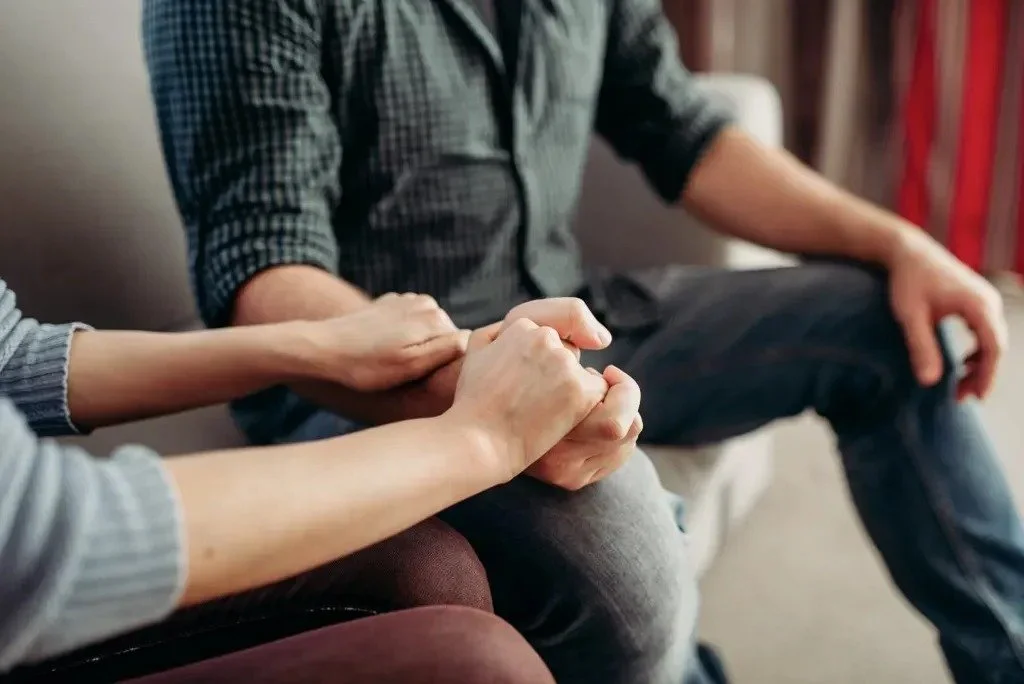How to Convince Your Partner to Attend Couples Therapy
You’re interested in couples counseling, but your partner may not want to go. Can you turn this situation around? Learn helpful ways to talk to your partner so they become more open to the idea of seeking help to improve your relationship.
Have you and your partner experienced ongoing problems that have soured your relationship? You could both benefit from couples counseling. Sadly, the average married couple waits six years before seeking help for problems.
Don’t wait until your relationship is really on the rocks to seek new ways of communicating and handling conflict. Our licensed marriage and family therapists at Happy Apple teach you new skills to establish trust and use the honest communication needed for a healthy, long-term relationship.
You want to seek counseling, but your partner may not be ready. Following are helpful strategies that can open your partner’s mind to trying couples therapy.
Be sensitive to timing
Choose a calm time without distractions to bring up the idea of joint counseling. You may want to blurt out a demand when both of you are in your separate corners with the boxing gloves on, but that approach doesn’t work.
Avoid broaching the subject at a time when you and your partner are angry, rushed, or feel stressed. Try to connect with your partner before even bringing up counseling. Engage in an activity that you both like — whether it’s playing a game of cards, watching a movie, or putting a puzzle together — so positive feelings are present.
Use “I” statements to reduce defensiveness and focus on the need
Using “I” statements is a staple in family therapy and couples counseling. An “I” statement helps you express your concerns and needs about your relationship without blaming your partner and making them feel defensive.
An “I” statement reveals your own feelings and how you’d like things to be different. For example, “I feel sad when we fight over our son’s problems. I want to improve our relationship and get support for both of us, and I’d like us to look into couples therapy.”
Those types of statements are much better received than phrasing such as, “You always…” or “You never….”
Acknowledge your partner’s feelings
You may encounter resistance. Perhaps your partner had a bad experience in therapy in a previous relationship, or maybe they’re afraid of exposing private problems to a third party. They may also be concerned that you’re going to attack them in therapy.
Listen to your partner’s reasons for not wanting to go to couples counseling and reflect their feelings and reasons back to them using “I” statements. For example: “I hear you saying that you’re not interested and think it won’t help. I would still like to try and want you to come, even if you just listen.”
Avoid getting defensive. Explain why you want to go, such as a desire to deepen your relationship by working with a counselor to heal relationship wounds and improve communication.
Identify issues that you and your partner haven’t been able to resolve on your own
In working to overcome your partner’s reluctance to attend couples therapy, you can point out the communication styles you and your partner use now that aren’t working well.
You might say: “We both get heated and bring up old issues” or “We both sweep things under the rug, which causes tension in the relationship.” You can explain that a counselor can help you practice a different type of communication when you disagree.
Call Happy Apple, send a message through our online portal, or book an appointment online. We’re happy to answer your questions about our therapeutic approach and how we work to help couples improve the skills needed to strengthen and deepen their connection.


